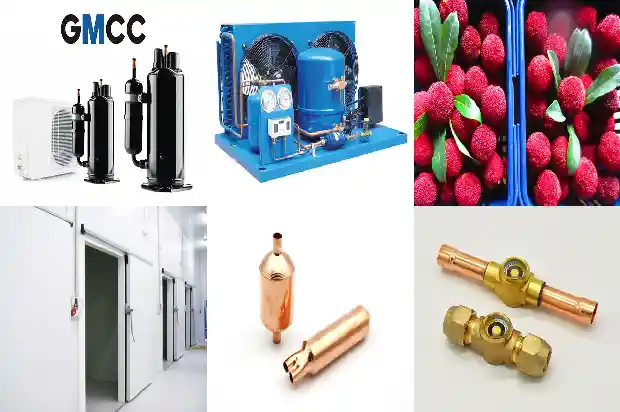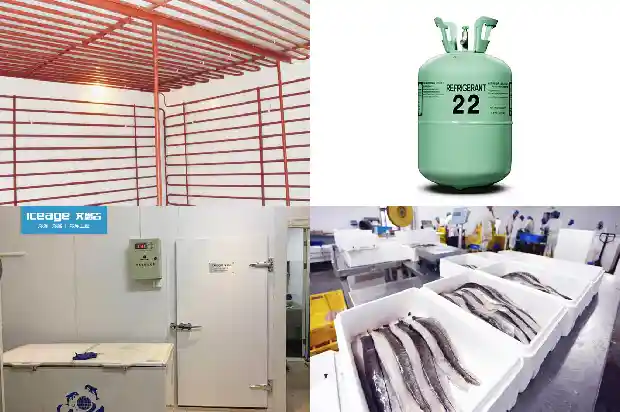Did You Know? Any Incompatibility between Base Oil and Refrigerant Could Destroy a Refrigeration Compressor
2025-04-05
Refrigeration compressor lubricants are typically a blend of specialized additives and base oils to provide the necessary lubrication properties while also being compatible with refrigerants. Any incompatibility between the base oil and the refrigerant can lead to catastrophic consequences for the equipment.
Most compressor lubricants are synthetic. This gives them a longer service life and better ability to withstand the harsh conditions of the system compared to mineral - based oils.

While the compatibility between the refrigerant and the lubricant is perhaps the most pressing lubrication issue, there are many other aspects. For example, water contamination is harmful to many hydrolysis - unstable synthetic base oils. Water reacts with the base oil to form acids, which change the viscosity and impair the lubrication properties. This can lead to premature compressor failure and inadequate system cooling.
Lubricant problems are common in any system. One way to avoid problems during the gas compression process is simply to remove the lubricant from the reaction. This often occurs as "dry" compressors are becoming more widely used. "Dry" means a lack of oil in the compression chamber. If the lubricant is not in the compression chamber, it is less likely to mix with the refrigerant and cause problems. However, in wet or water - containing compressors, the oil is present in the compression chamber and is closely mixed with the refrigerant. In these systems, the compatibility between the lubricant and the refrigerant is of utmost importance.
Many large compressors utilize a forced - lubrication system, which consists of an oil reservoir, pipes, and a pump. The pump pushes the oil through the pipes into the compressor for lubrication and cooling, and then the oil returns to the reservoir. The operation of these systems enables filtration, cooling, and the separation of gas and water from the oil.

Smaller compressors usually have a static lubrication system, in which the compressor holds the oil and the system is completely sealed. As long as it is cleaned and sealed before use, the likelihood of lubricant failure in this type of system is low. In most cases, these systems will run for many years without the need for an oil change. The lubricant is present in the compressor for lubrication, but some oil will flow out through the refrigerant pipes. In some cases, an oil sump or knockout method must be used to prevent the system's cooling capacity from being reduced due to oil clogging the pipes.

Related Articles
- How to Solve the Problem of Basement Moisture and Condensation during Summer Construction?
- Six Misunderstandings about the Dual-supply Water-based System! Have You Fallen for Them?
- Working Principle and Daily Maintenance of Water-based Machines
- Classification, Principle, Model Selection and Application, and Troubleshooting of Fan Coils
- Several Precautions for Selecting Fan - Coil Units
- Common Fan - Coil Unit Control Systems
- Introduction to the Application of End - product, Fan and Motor Characteristics (Fan - coil Unit Section)
- Why Does the Compressor Lack Oil? Why Is There an Oil Film on the Evaporator?
- Four Major Factors Affecting the Boiling Heat Transfer of Refrigerant Liquid
- The Most Comprehensive Knowledge of Refrigeration Oil, Definitely Useful in the Future!
- Several Key Components on the Oil Circuit of the Refrigeration System
- Wiring Methods, Faults and Classifications of Fan Coil Units, All Here~~
- Eliminate the "Blockage" Faults (Ice Blockage, Dirt Blockage, Oil Blockage) of the Refrigeration System in 5 Minutes
- Forms and Structures of Oil Separators in the Refrigeration System
- Reasons for Compressor Oil Deterioration and Oil - adding Operations
- Oil Cooling Methods and Oil - changing Operation Procedures for Screw Compressors
- Causes and Solutions of Ice Blockage, Dirt Blockage and Oil Blockage
- Which is Better for Cold Storage: Cooling Coils or Air Coolers?
